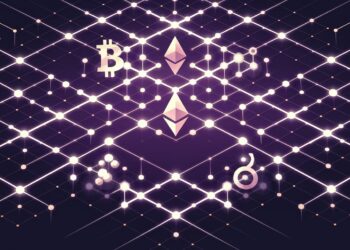As artificial intelligence (AI) rapidly shapes the world around us, from accelerating drug discovery to enhancing worker productivity to personalizing content, its influence is poised to fundamentally transform industries on an unprecedented scale. With the AI industry expected to grow by approximately 40% annually and reach a trillion-dollar market by 2030, crypto has the potential to play a crucial role in enabling open-source AI to reach its full potential and address some of the current shortcomings in AI development.
The Landscape of Closed-Source AI
Despite this immense potential, today’s AI landscape is predominantly led by closed-source systems controlled by a handful of tech giants. Closed-source AI refers to proprietary models owned and operated by a single entity, with the underlying code hidden from public view. Users have little insight into how these models were trained or what data influences their outputs, raising concerns about unethical applications and manipulation, such as pushing addictive content for profit or promoting certain products or biases.
Moreover, projections indicate that frontier AI models will cost over $1 billion to train in the coming years. The high capital requirements and network effects associated with AI development create a significant barrier to entry, stifling innovation and competition from smaller players.
The Promise of Open-Source AI
Open-source AI offers a way to combat these challenges. In contrast to closed models, open-source AI makes the source code available, allowing anyone to inspect, modify, and improve upon the work freely. This openness helps build trust and accountability, as developers and users can scrutinize these models’ alignment with their own needs and values. Just months ago, Meta announced its support for open-source AI by releasing Llama 3.1, the first frontier-level open-source AI model, citing its accessibility and adaptability.
However, open-source AI faces its own hurdles, particularly in funding and coordination. Because open-source AI models can be freely copied or adapted, they can be difficult to monetize and sustain development efforts. In Meta’s case, Mark Zuckerberg’s decision to open-source didn’t directly lead to revenue generation. Of course, this isn’t a significant issue for a company with Meta’s other revenue streams. For others, it poses a major challenge—especially startups and independent developers lacking similar resources. The lack of financial incentives can hinder the ongoing maintenance and improvement of open-source models, leading to fragmented efforts and inefficiencies.
Decentralized AI: A Crypto-Powered Solution
Decentralized AI presents a compelling alternative to both open and closed-sourced AI by leveraging blockchain technology and crypto-based incentives. In decentralized AI systems, no single entity controls the network; instead, ownership, access, and rewards are distributed among participants. This approach addresses the funding and coordination issues plaguing open-source AI by introducing token economies that provide ongoing financial incentives to contributors. For example, decentralized networks like NEAR, Bittensor, Allora, Sentient, and Sahara aim to reward participants with native tokens for their contributions to training and improving AI models, creating a sustainable economic model that can enable developers to fund continued development.
Yesterday, DCG, the parent company of where I work, announced it is setting up Yuma, a new company, to build decentralized AI technology within the Bittensor ecosystem.
– William Ogden Moore, Research Analyst at Grayscale Investments
Decentralized AI networks like Sahara, Grass, and Masa are experimenting with rewarding users for providing their personal data. Any time personal data is used to train a model on Sahara, users are rewarded with tokens. This example illustrates how blockchain-powered economic incentives can help bootstrap open-source AI networks by rewarding data contributions, effectively overcoming traditional capital barriers that have hindered access to expensive data sources like Reddit.
Decentralized AI also enhances coordination through decentralized governance. In OpenAI’s case, a corporate board controls key decisions that can have major ripple effects; for instance, last year they decided to remove Sam Altman—a decision that was ultimately reversed. In contrast, these decentralized AI networks are public, out in the open, and can eventually be governed by token holders. This will enable collective decision-making and resource allocation in a manner more aligned with the community’s goals, rather than the objectives of a select few.
As AI continues to expand its influence, the need for more transparent, accessible, and sustainable development models is becoming increasingly urgent. While open-source AI offers meaningful improvements over closed-source systems, it still falls short in areas of funding and coordination. The nascent category of decentralized AI offers a compelling solution to some of these problems by aligning economic incentives with collaborative innovation and ensuring AI technologies evolve in a manner that can benefit all stakeholders.








